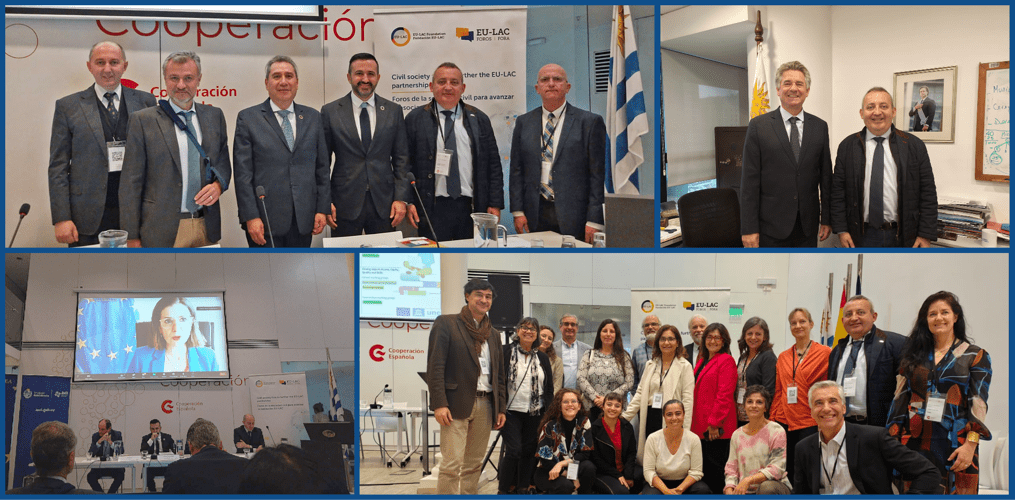
On 24–25 April, LifeWatch ERIC participated in the working groups of the EU-LAC Knowledge Forum, held in Montevideo, Uruguay. The event was organised by the EU-LAC International Foundation, with the Uruguayan International Cooperation Agency (AUCI) and the Spanish Agency for International Development Cooperation (AECID) as main partners. Its purpose was to generate input to feed the agenda of the high authorities of the European Union and Latin America and the Caribbean at the Summit of Heads of State and Government in the field of access to knowledge, higher education, and science, technology, and innovation. This CELAC-EU Summit of Heads of State and Government is scheduled for 17–18 July 2023, within the programme of the Spanish presidency of the European Union.
120 representatives of international or national organisations and entities participated in the EU-LAC Knowledge Forum. In addition to the plenary sessions, the work in the forum was structured in 3 face-to-face and 3 virtual groups to exchange good practices, experiences and balances of cooperation in science, technology and innovation, higher education and opportunities. LifeWatch ERIC was represented by its CTO, Juan Miguel González-Aranda, and by Maite Irazábal Plá, EU-LAC Fundraising, Networking & Projects Manager.
Within the framework of the international expansion process of LifeWatch ERIC, and with the objectives of this high-level strategic discussion forum, Juan Miguel González-Aranda held meetings with numerous authorities and representatives of the academic and scientific communities, experts from international organizations, and senior government officials. Among others, with the Vice Chancellor of the Republic of Uruguay, Nicolás Albertoni; with the Vice Minister of the Environment of Uruguay, Gerardo Amarilla de Nicola; with the Executive Director of the EU-LAC Foundation, Adrián Bonilla; with the Director of Innovation, Science and Technology of Uruguay, Alberto Majó; with the Ambassador of the EU in Uruguay, Paolo Berizzi; with the Ambassador of Spain in Uruguay, Santiago Jiménez; and with AUCI Executive Director, Mariano Berro.
The meeting with Gerardo Amarilla de Nicola, who received LifeWatch ERIC’s CTO at the complex of the Presidency of the Republic of Uruguay, had special relevance. They delved into local governance mechanisms to help implement e-Biodiversity measures in compliance with the 2030 SDGs, in synergy with the EU Green Deal and themes of Blue Growth, Agroecology, etc., applying the Motto “Thinking globally, acting locally”. They also discussed the establishment of a LifeWatch ERIC Office in Uruguay.
Also importantly, LifeWatch ERIC participated in the Forum in Working Group 1: Cooperation in science, technology, and innovation, dedicated to topics such as: Research Infrastructures; enabling environments for innovation; technology transfer; open science / open access policies; and the role of research institutions to generate the technical and scientific knowledge and expertise needed to implement EU Global Gateway investment agenda. In this vein, Juan Miguel González-Aranda reaffirmed the work of LifeWatch ERIC as a research infrastructure of best practices in EU-LAC within the framework of Biodiversity, Climate Change and Sustainable Development, citing specific working methods through the Bioregions paradigm.
You can watch the plenary session of the opening day and the conclusions of the second day here.